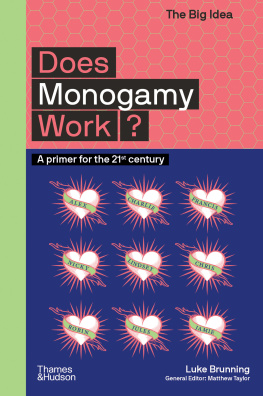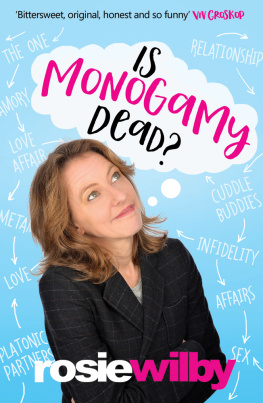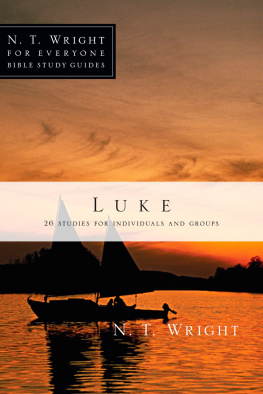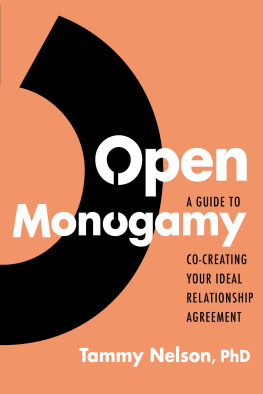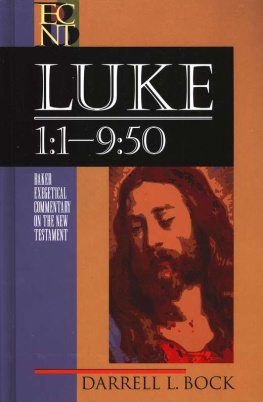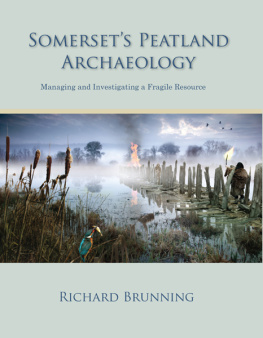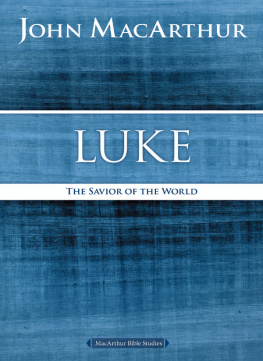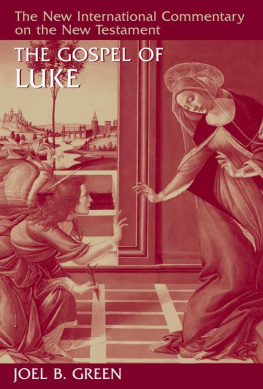Luke Brunning - Does Monogamy Work?
Here you can read online Luke Brunning - Does Monogamy Work? full text of the book (entire story) in english for free. Download pdf and epub, get meaning, cover and reviews about this ebook. year: 2020, publisher: Thames & Hudson, genre: Home and family. Description of the work, (preface) as well as reviews are available. Best literature library LitArk.com created for fans of good reading and offers a wide selection of genres:
Romance novel
Science fiction
Adventure
Detective
Science
History
Home and family
Prose
Art
Politics
Computer
Non-fiction
Religion
Business
Children
Humor
Choose a favorite category and find really read worthwhile books. Enjoy immersion in the world of imagination, feel the emotions of the characters or learn something new for yourself, make an fascinating discovery.
- Book:Does Monogamy Work?
- Author:
- Publisher:Thames & Hudson
- Genre:
- Year:2020
- Rating:4 / 5
- Favourites:Add to favourites
- Your mark:
- 80
- 1
- 2
- 3
- 4
- 5
Does Monogamy Work?: summary, description and annotation
We offer to read an annotation, description, summary or preface (depends on what the author of the book "Does Monogamy Work?" wrote himself). If you haven't found the necessary information about the book — write in the comments, we will try to find it.
Does Monogamy Work? — read online for free the complete book (whole text) full work
Below is the text of the book, divided by pages. System saving the place of the last page read, allows you to conveniently read the book "Does Monogamy Work?" online for free, without having to search again every time where you left off. Put a bookmark, and you can go to the page where you finished reading at any time.
Font size:
Interval:
Bookmark:




Luke Brunning (PhD) is a philosopher whose research focuses on relationships, love, sexuality and emotions like jealousy and grief. He is currently a Lecturer in Ethics at the University of Birmingham, Department of Philosophy, and previously held a British Academy junior research fellowship at the University of Oxford. He has written widely for academic journals and trade publications, including the Independent and the Times Literary Supplement.
Matthew Taylor is Chief Executive of the RSA, a 250-year old British institution devoted to enriching society through ideas and action to deliver a 21st-century enlightenment. A writer, public speaker and broadcaster, he has written widely on policy, politics, public service reform and cultural theory, and frequently appears on Newsnight, The Daily Politics, and Radio 4s Today and The Moral Maze. He was previously General Secretary and Chief Executive of the Institute for Public Policy Research, Britains leading think tank.
Thames & Hudson include:
Is Capitalism Working?
Is Democracy Failing?
Is Gender Fluid?
Is Medicine Still Good for Us?
What Shape is Space?
Will AI Replace Us?
Is Masculinity Toxic?
Should We All Be Vegan?
Is Technology Making Us Sick?
Can We Save the Planet?
Can Globalization Succeed?
www.thamesandhudson.com
www.thamesandhudsonusa.com
www.thamesandhudson.com.au

Quick-recognition text hierarchy
Read this book in the way that suits you best. Paragraphs are prioritized using different font sizes. The larger the font size the more important the words are to the overall concept or argument.
So, if you only have half an hour to spare, just read the paragraphs set in the two largest font sizes and youll still get a basic overview of the subject.
With an hour at your disposal, get a deeper understanding of the principles and arguments by reading all the paragraphs apart from those in the smallest font size.
If you can set aside a couple of hours, youll be able to read the entire book and get both a well-balanced overview and a detailed comprehension of individual concepts.
Pertinent and punchy imagery
Images are as much a part of the debate as the text itself. Juxtaposed in a thought-provoking way, or used to expand on the argument, they offer additional insights throughout.
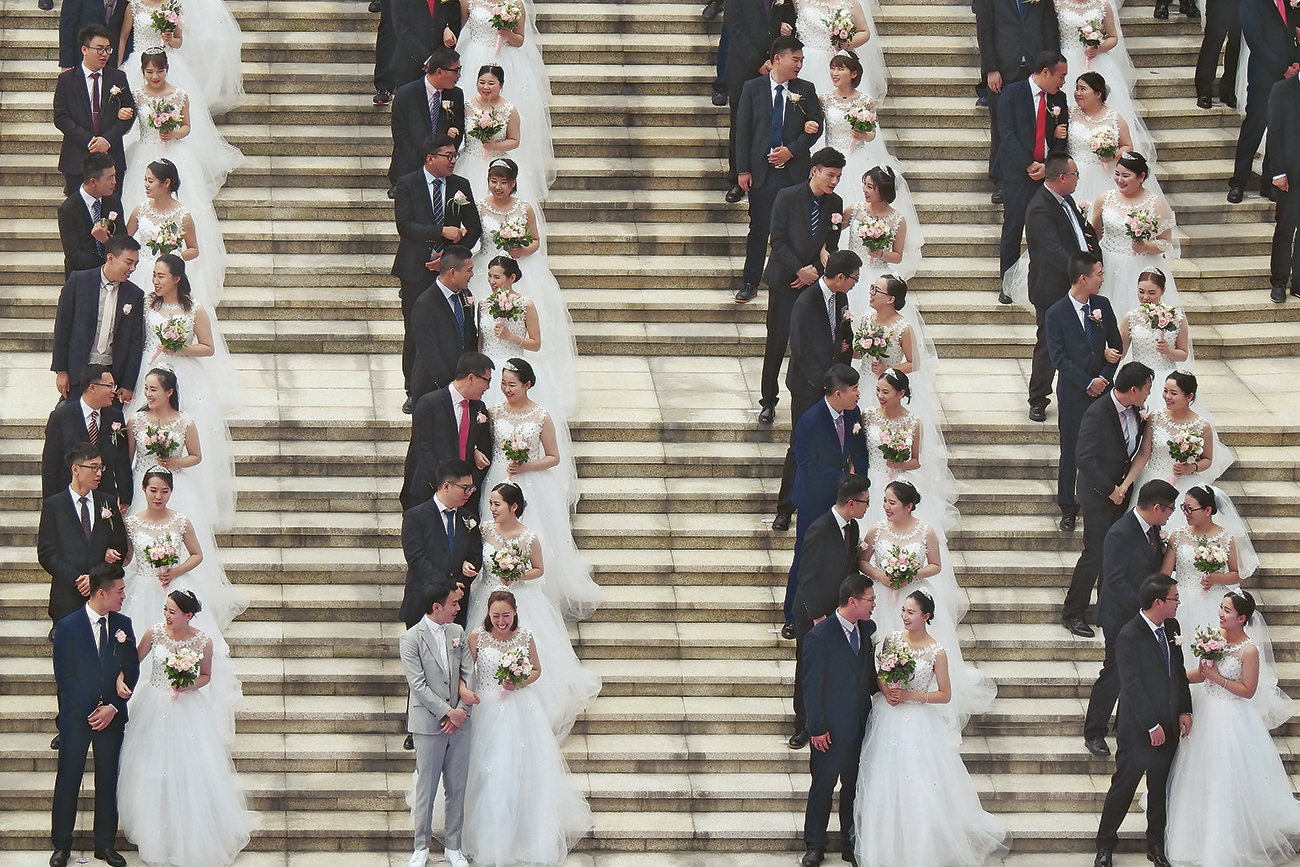
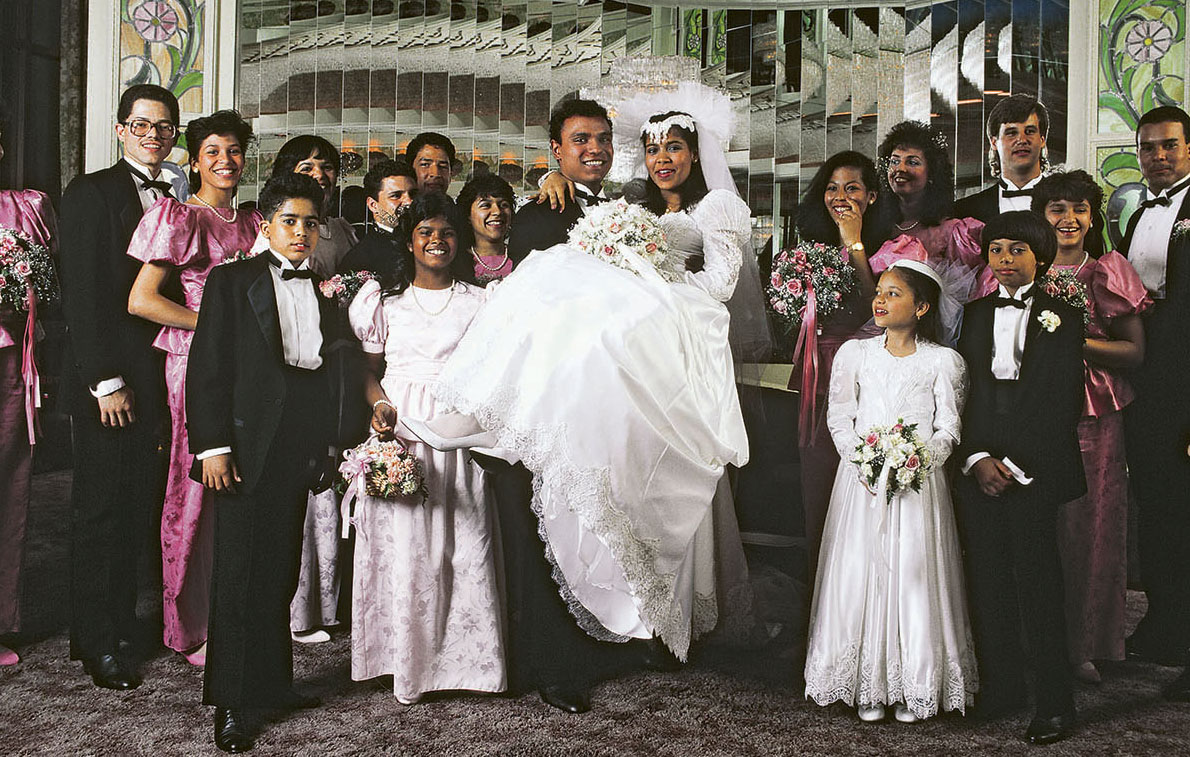
A For many people, monogamous marriage is the ideal form of relationship; the ultimate expression of love and commitment, and the best context in which to raise a family.
Does monogamy work?
Doubtless we have asked this question of our own relationships or of those of people we know. On the one hand, the ideal of monogamy promises love, intimacy and lifelong companionship. On the other, monogamy requires us to forego all other sex and romance. For some, this is an easy choice; for others, a cause of ambivalence. In this book, we take this ambivalence seriously by exploring monogamys origins, the contemporary pressures experienced by monogamous people and some responses to those pressures, including the adoption of nonmonogamy.
Although we may wish it were otherwise, monogamy is a contingent form of romantic life rather than an evidently natural way to love and raise families. Monogamy is predominantly a social ideal, so it is vulnerable to social change. We will learn, for example, what Roman slavery, social inequality and early Christianity have to do with monogamy, and how the monogamy ideal was shaped by successive social upheavals, from industrialization to inflation, farming to feminism.
Monogamous wedlock has been under siege since the golden age of marriage in the 1950s, with rising divorce rates, increasing cohabitation, sexual liberation and new visions of romantic life. In Britain, for example, divorce rates rapidly increased in the 1970s after the introduction of the Divorce Reform Act of 1969. They peaked in the 1990s, with around 14 divorces per 1,000 marriages. Since then, rates of divorce have fallen slightly, but only because the overall marriage rate has plummeted, dropping by 50% between the 1960s and 1970s alone. According to the Office for National Statistics in the UK, in 2016, 243,000 opposite-sex couples married, compared to 471,000 in 1940; 88% of couples were cohabiting before marriage; only 24% of marriages were religious and the average age of men getting married for the first time was 37.9 years and for women 35.5 years. By 2018, the average length of a marriage that ended in divorce was a mere 12.5 years.
The golden age of marriage occurred in western cultures during the 1950s and 1960s. This was the heyday of marriage and the nuclear family, when fathers provided the main income, and mothers stayed at home. Despite the widespread myth, this form of apparently traditional marriage has been rare throughout history.
The UK Divorce Reform Act of 1969 introduced new legislation that meant spouses no longer had to evidence significant fault in order to end a marriage, irretrievable breakdown became sufficient. William Wilson (19132010), the MP who introduced the legislation, noted that though marriages are made in heaven, they dont always stay there.

B A woman cuts into the cake at her divorce party. Today many couples divorce out a diffuse sense that they are no long compatible, or that their desires pull in different directions: evidence of how marital ideals have changed dramatically in recent decades.
Responses to these facts could include making greater efforts to make a marriage work, modifying our expectations of monogamy or exploring other options, such as open relationships or polyamory . Could changing marriage institutions so that monogamous couples are not privileged actually make it easier to be monogamous? Might adopting polyamory enable people to flourish romantically, and raise families, without conflict and jealousy?
Polyamory means many loves, and is is a neologism which blends Greek (poly-) and Latin (amor) to describe people who can romantically love several people at once.
Next pageFont size:
Interval:
Bookmark:
Similar books «Does Monogamy Work?»
Look at similar books to Does Monogamy Work?. We have selected literature similar in name and meaning in the hope of providing readers with more options to find new, interesting, not yet read works.
Discussion, reviews of the book Does Monogamy Work? and just readers' own opinions. Leave your comments, write what you think about the work, its meaning or the main characters. Specify what exactly you liked and what you didn't like, and why you think so.

